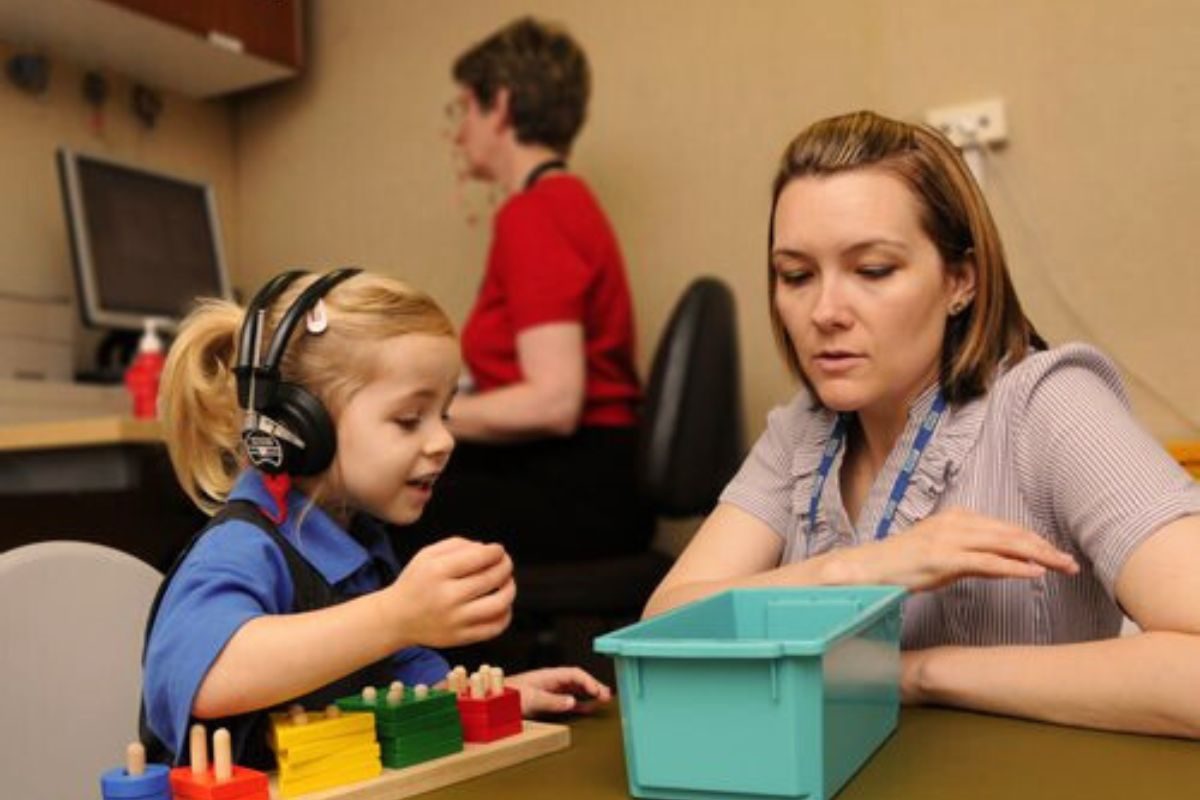Pediatric Audiologic Assessment
Pediatric audiologic assessment is the process of evaluating the hearing function of children from birth to 5 years of age. It involves using a combination of behavioral and physiological methods to determine the type, degree, and configuration of hearing loss, as well as the impact of hearing loss on the child’s development and communication. Pediatric audiologic assessment is important for early identification and intervention of hearing loss, which can minimize the negative effects on speech, language, education, social, emotional, and psychological outcomes.
Some of the methods used in pediatric audiologic assessment are:
• Behavioral observation: This method involves observing the child’s responses to sounds in the environment, such as speech, music, or noise. The audiologist may use toys, lights, or other stimuli to attract the child’s attention and elicit a response. Behavioral observation can provide information about the child’s awareness and localization of sounds, as well as their preferences and aversions to certain sounds.
• Visual reinforcement audiometry (VRA): This method involves conditioning the child to associate a sound with a visual reward, such as a toy or a video. The audiologist presents sounds of different frequencies and intensities through speakers or headphones and observes the child’s head turn or eye movement toward the sound source. VRA can provide information about the child’s hearing thresholds across the frequency range.
• Conditioned play audiometry (CPA): This method involves teaching the child to perform a simple task in response to a sound, such as putting a block in a box or stacking rings on a pole. The audiologist presents sounds of different frequencies and intensities through speakers or headphones and observes the child’s completion of the task. CPA can provide information about the child’s hearing thresholds across the frequency range, as well as their ability to follow instructions and cooperate with testing.
• Speech audiometry: This method involves presenting speech stimuli, such as words or sentences, through speakers or headphones and asking the child to repeat them or point to pictures. The audiologist varies the loudness and clarity of the speech stimuli and observes the child’s accuracy and comprehension. Speech audiometry can provide information about the child’s speech recognition and discrimination abilities, as well as their speech development and vocabulary.
• Physiological assessments: These methods involve measuring the physical responses of the ear or brain to sound stimuli, such as acoustic immittance, otoacoustic emissions (OAEs), auditory brainstem response (ABR), or auditory steady state response (ASSR). The audiologist places electrodes or probes on or in the ear and presents sounds of different frequencies and intensities through speakers or headphones. The equipment records the changes in pressure, vibration, or electrical activity in the ear or brain that occur in response to sound. Physiological assessments can provide information about the integrity and function of the outer, middle, and inner ear, as well as the auditory nerve and brainstem.
Pediatric audiologic assessment is a complex and comprehensive process that requires specialized training and equipment. It is recommended that children who are at risk for hearing loss or who fail a hearing screening be referred to a pediatric audiologist for further evaluation. A pediatric audiologist is a professional with a master’s or doctoral degree in audiology and the technical expertise and desire to work with infants and children https://www.infanthearing.org/audiology/. A pediatric audiologist can diagnose hearing loss, provide recommendations for intervention, monitor hearing status, and collaborate with other professionals and family members to support the child’s optimal development.
For more information about pediatric audiologic assessment, you can refer to these sources:
• Clinical Guidance Document Assessment of Hearing in Infants and Young Children by American Academy of Audiology
• Guidelines for the Audiologic Assessment of Children From Birth to 5 Years of Age by American Speech-Language-Hearing Association
• Pediatric Diagnostic Audiology by National Center for Hearing Assessment and Management
